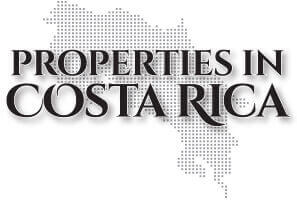A Quick Guide to Owning Property in Costa Rica
By Sebastian Jimenez M. and Mariela Sanabria B. (COLBS Legal Studio)
Search Your Property
A visit to the beaches, rainforests, and volcanoes of Costa Rica will have many wishing to live or own property within its tropical paradise. To do so, there are many important considerations to take into account, which we have compiled into a quick guide below:
OWNERSHIP – WHO, WHAT, AND HOW:
Costa Rica is a long-standing democracy unique within the continent, being the rule of law and the due process the pillars upon which the system stands untamed. Having abolished the army in 1948, the education and healthcare systems took over rifles and tanks.
Costa Rica is a foreigner-friendly country, whose Constitution grants foreigners and entities controlled by foreigners the same rights as Costa Rican citizens. Therefore, foreigners and Costa Rican citizens are equally allowed to own real estate directly. Costa Rica even grants resident investor visas to those who make an investment in real estate of $200,000 or more.
Costa Rica takes very good care of its famous biodiversity and natural resources, which extends to property ownership. For example, land within the maritime zone, as well as rivers, lagoons, mangroves, wetlands are usually considered as public domain. As a result, ownership of such land is either restricted or not possible.
Finally, property ownership may be direct or indirect, since the property may also be purchased indirectly by buying all shares and ownership interest of a corporation or other entity that owns real estate. For a real property to be directly conveyed or transferred, said transfer must occur in the form of a public deed instrument, which is issued by a Notary Public. The public deed instrument is signed and authorized by the parties, and an official deed certificate is later submitted to the National Registry. However, the title to real property is only conveyed until the public deed is fully registered in the National Registry. At COLBS Legal Studio, we offer to aid our client throughout the whole process of conveyance and transfer, beginning to end.
NECESSARY PRECAUTIONS:
Before purchasing property in Costa Rica, we recommend performing comprehensive due diligence of the property. Hence, a thorough legal, tax, environmental, and municipal research must validate the background, existence, and singularity of the legal title. As well as looking into any cadastral and registry alerts to avoid fraud. Another important recommendation is to visit the property and in situ confirm the boundaries of the property and contrast the property boundaries with the recorded survey and title in the National Registry. In COLBS Legal Studio we may perform these precautions for you, and further, take any necessary measures to solve issues that may arise.
TAXES AND FEES
Within the transfer costs of real property, one must include Notary Public fees, registry stamps, transfer, and capital gains taxes. These costs vary on a case by case basis but usually range within 3.25% and 3.55% percent for transfer and 2.5% to 15% for capital gains. The purchase or sale costs are usually paid equally between the buyer and the seller, as both are equally and legally bound to make said payments.
Once the property has been purchased, the applicable recurring fees and taxes are the following: municipal taxes, corporate tax (if applicable), and solidarity/luxury tax (if applicable). Both the municipal tax and the solidarity tax are calculated based on the value of the property, however, the solidarity tax is only applicable if the property is worth more than $210,000. Finally, the corporate tax only applies if the property is owned by a corporate entity, and the amount varies on whether the entity is economically active or not.
ZONING REGULATIONS
Lastly, our legal system has important provisions that could affect property ownership. An important distinction is that Costa Rica has a civil law system, which means that written law will prevail over past court rulings (precedents). Within the written law, zoning and construction regulations are held to a broad regulatory framework, in which Municipal Regulatory Plans (Planes Reguladores) is the first point of reference. Moreover, and as previously stated, Costa Rica has multiple environmental regulations that must be taken into account, as these may affect or limit construction activities and their regulations.
Once more, COLBS Legal Studio is glad to help you in the process of acquiring or selling property in Costa Rica, for which we will do our best to provide our top-quality legal services in both a responsive and efficient manner.
Please feel free to contact us at sjm@colbs.legal
